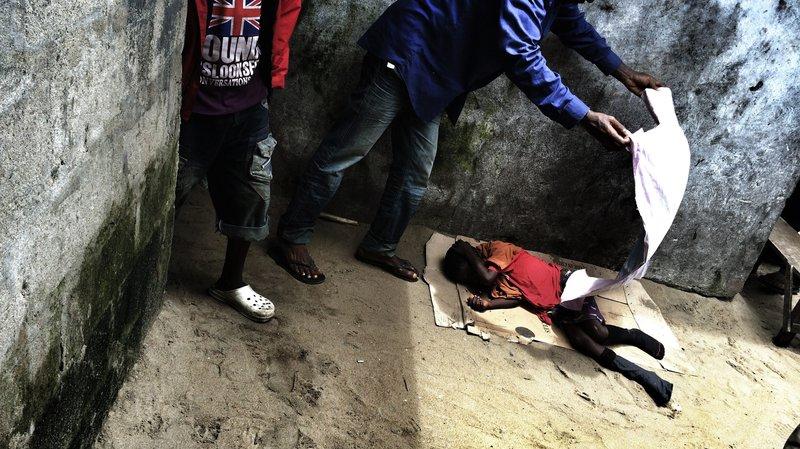Is the risk of photojournalism worth it?
Saah Exco was found alone on a beach in Monrovia, Liberia, naked and abandoned. Neighbors were afraid to touch him; they were worried about Ebola.
The death of NPR photojournalist David Gilkey was a reminder of how dangerous photojournalism can be.
He and his translator, Zabihullah "Zabi" Tamann, were killed while on assignment in Afghanistan, when the convoy they were traveling in was ambushed by Taliban fighters. Photojournalists like Gilkey go places most of us wouldn’t want to go, they take pictures of things we may not want to see. They risk their lives, hoping to send back that one image that just might change someone’s mind or open someone’s heart.
Gilkey spoke on a panel with some other public radio journalists a couple of years ago. He’d just gotten back from Liberia, where he was covering the Ebola epidemic and he told us about a single photo he took — a picture of a little boy, who looks to be 4 or 5 years old.
See more great images from photojournalists who risk their own lives to tell stories.
“We first came across him on a beach in Monrovia sitting naked, scared on a little bucket,” Gilkey said. “He was sitting on a paint bucket surrounded by about 50 people and he was clearly sick, he couldn't move. I shot video of him in the morning and then, as the day progressed, we left and we came back and somebody had moved him about, I don't know, 20 yards up to where this photograph was taken. And no one would touch him. Nobody was helping the situation.”
Gilkey and another photographer he was with, John Moore, happened to have latex gloves with them, and they gave these gloves to the locals. They stood around and asked people what they were going to do about the situation.
“It was heartbreaking,” Gilkey said, “because the locals in this area were denying for the most part that Ebola existed, yet nobody would touch the little boy.”
Gilkey and his colleagues left the scene, but returned the next morning. The boy was gone, and someone said he had been taken to the hospital overnight. Later that afternoon Gilkey learned the boy had died.
“It was a tremendously difficult thing to watch," Gilkey said, "because you were seeing the real face of Ebola, and how lonely it could be.”
As a photojournalist Gilkey faced a moral dilemma.
“The situation that unfolded, at least for me in Liberia that day, was something that I think anybody would reach out to do something. I mean, I think we all in Journalism 101 and 102 and 103 learn to know, you are not part of the scene. You have to take a step back. And this was a situation that as, on a human level, you had to do something."
"There was also just the fine line of being safe. So I couldn't pick the little boy up and take him myself to the hospital — that would be, I think, too much. And it would be putting myself at risk. But, on the same token, certainly, I had latex gloves. We had the ability to do a little something for the situation that was there and … I don't know if that's right or wrong, but it certainly made me feel a little bit better about what I was taking pictures of.”
This story was first published by To The Best of our Knowledge. Subscribe to the TTBOOK podcast.
